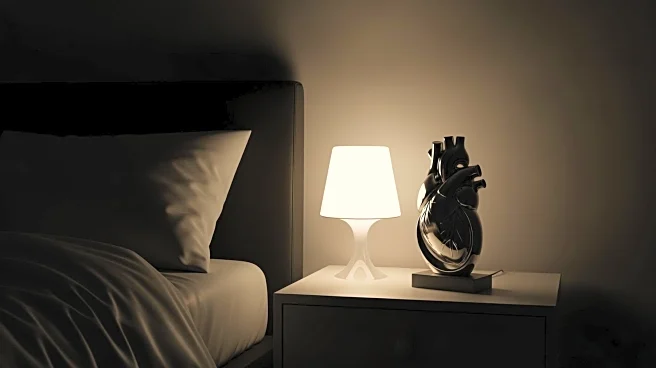What's Happening?
A Harvard University study has revealed that exposure to artificial light at night can significantly increase the risk of heart disease. The research utilized advanced brain imaging techniques and satellite measurements to assess the impact of nighttime
light on cardiovascular health. Findings indicate that higher exposure to artificial light correlates with increased brain stress activity, inflammation in blood vessels, and a greater likelihood of developing heart disease. The study followed 466 adults over a decade, noting a 35% increased risk of heart disease over five years and a 22% increase over ten years due to light exposure.
Why It's Important?
This study underscores the potential health risks associated with light pollution, a widespread issue in urban environments. The findings suggest that even modest increases in nighttime light can trigger stress responses in the brain and arteries, contributing to cardiovascular disease. The research highlights the need for public health strategies to mitigate light pollution, particularly in high-traffic and low-income areas where exposure is greater. Understanding the link between environmental factors and heart health is crucial for developing effective prevention measures.
What's Next?
The study calls for increased awareness among clinicians and policymakers regarding the impact of light pollution on health. Recommendations include reducing artificial light exposure in homes and communities, advocating for shielding streetlights, and using motion-sensitive lighting. Further research may explore the broader implications of light pollution on cognitive health, as previous studies have linked nighttime light exposure to Alzheimer's disease risk.
















